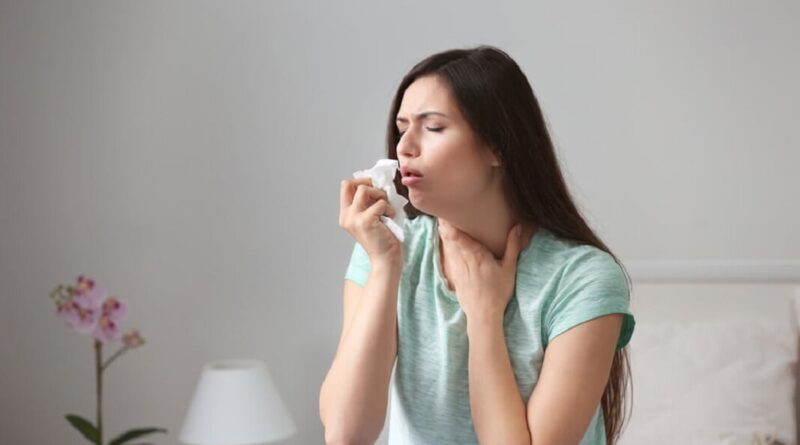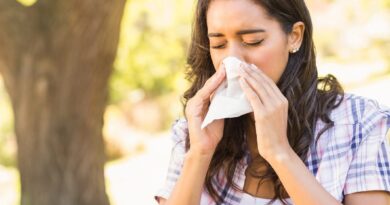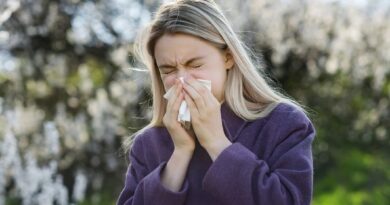Acupuncture for Allergies : How to Get Rid of It
Allergies are disturbing and irritating at the same time. There are different types of allergies, and few of them are capable enough to ruin your day altogether. From dust allergies to allergies from certain food items, the reasons and symptoms of allergies vary from person to person. The reaction can be continual sneezing, coughing, skin troubles, and internal infections as well.
Medication can suppress the symptoms without solving it from the core. But the ancient miracle acupuncture can cure allergies from inside out. Acupuncture for allergies is a remedy with nil side effects.
30% of American adults are reported to have allergies and more than 50 million from the U.S. suffer from this health condition each year.
Hay fever or allergic rhinitis is the most common allergic condition causing a stuffy nose, sneezing, watery eyes, itching on the roof of the mouth or eyes, etc.
- How Does it Works
- Acupuncture Points
- Seasonal Allergies Treatment
- How to Prepare for Acupuncture
- Risks and Side Effects
Table of Contents
Why Prefer Acupuncture for Allergies?
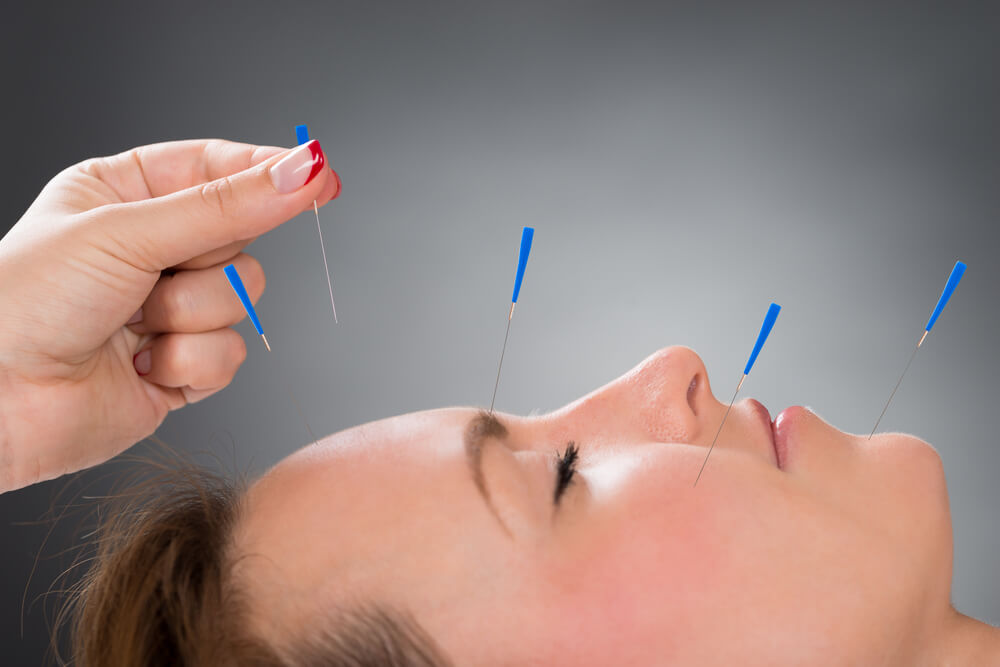
There are many available treatments for allergies. Most commonly used treatment is allopathic medication. But allopathic medicines are known for instant relief, and most of the drugs have other side effects. But acupuncture for allergies(1) is relatively safe because the method is a drug-free way to solve the issues.
Medicines react with your body internally. It is almost impossible to understand the changes it is making inside. A physician cannot predict the remedy; he can assume and prescribe medicines. The expected result can differ whereas an acupuncturist can see the reaction of the patient and change or alter the pressure points if necessary.
Acupuncture is an age-old Chinese traditional method to treat various ailments. It is known for stimulating certain specific vital points of the body and influence the cell. Acupuncture sends a signal to the brain and maintains the essential flow of the body. Studies have shown the benefits of acupuncture for allergies.
How Does Acupuncture Work in Combating Allergies?
You may think – how acupuncture can cure allergies? Because trusting the commonly accepted ways to treat ailments than relying on the wisdom of our ancestors is our natural tendency. People suffering from allergies try anything and everything on earth to get rid of them. But here we will talk about how acupuncture helps with allergies?
It is essential to know the cause of an ailment to treat it. Similarly, understanding the cause of allergy is needed to cure it. Acupuncture is based on a traditional theory of maintaining the flow of vital energy in the body.
There are 71 meridians or channels in our human body. The essential energy or ‘qi’ flows through those channels. These 71 meridians are in control of all our muscles, organs and nerves.
Allergy is the blockage of qi or the flow in the opposite direction. Therefore, the body suffers from an internal imbalance. Acupuncture removes the obstacle from the meridians and restores the balance of energy. These points for allergies are nothing but the specific aspects of the meridians which can be stimulated to correct the imbalance.
Acupuncture Points for Allergies
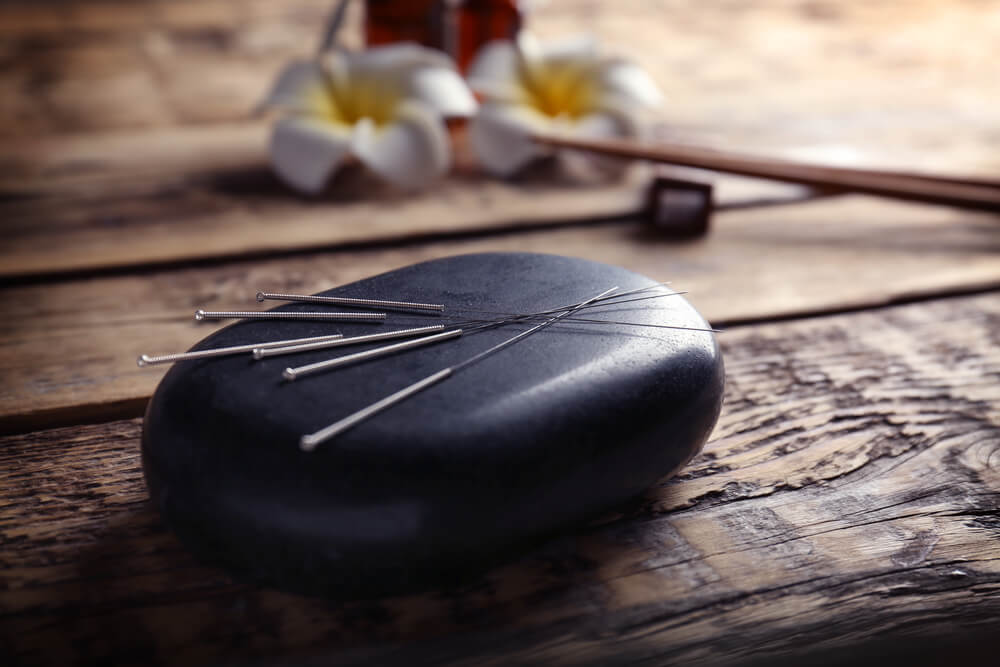
Image:ShutterStock
According to medical science, allergy is an immediate hypersensitivity reaction to something. Acupuncture(2) for allergy can cure chronic issues like an allergy. Acupuncture excites the nervous system. Be it a perennial allergy or seasonal allergy; acupuncture can cure or solve them all.
But knowing about the acupuncture points for allergy is essential to understand the nitty-gritty of the treatment:
LI-20 or Yinghsiang:
This point is the most used acupuncture point and known as the most effective pressure point in traditional Chinese medicine. This pressure point is highly useful for treating a nasal blockage.
LI-4 or Hoku:
Hoku point is essential for treating any physical disturbance around the face. It is the best acupuncture point for addressing the runny nose and watery eyes for treating allergies.
Acupressure Points for Treating Allergies
Acupressure is a bit different from acupuncture. Acupressure does not require the insertion of needles. The specific points need to be massaged or pressured in a certain way to treat the issue. Apart from acupuncture, acupressure is also beneficial for allergies. Here are a few acupressure points for allergies:
The Seven:
Most of the acupuncturist use these seven points to treat allergies, especially seasonal allergies. Six points among these seven points are present in the face. The curve of nose outside the nostrils, curve under the eyes and beginning of both the eyebrows are the points you need to create pressure twice.
Spleen 5:
This is the seventh point you need to know about. This point is located in the prominent bone of inner ankle of your left leg. This pressure point is necessary to cure allergies from inside.
Acupuncture For Seasonal Allergies Treatment
Acupuncture for allergies is a proven method. And if you are suffering from seasonal allergies, then acupuncture is the best healing process. Commonly known as allergic rhinitis, seasonal allergy is associated with certain times of the year which trigger allergic responses.
Allergies are part of the seasons like spring and fall. Seasonal allergies can have different symptoms like sneezing, running nose, watery eyes and headache accompanied with fever. Acupuncture addresses the underlying imbalance in the body. It treats the root issue of allergic rhinitis. Western medicines come with side effects like drowsiness etc. But oriental treatment like acupuncture for allergy is safe and time tested as well.
How to Prepare for Acupuncture Treatment for Allergies
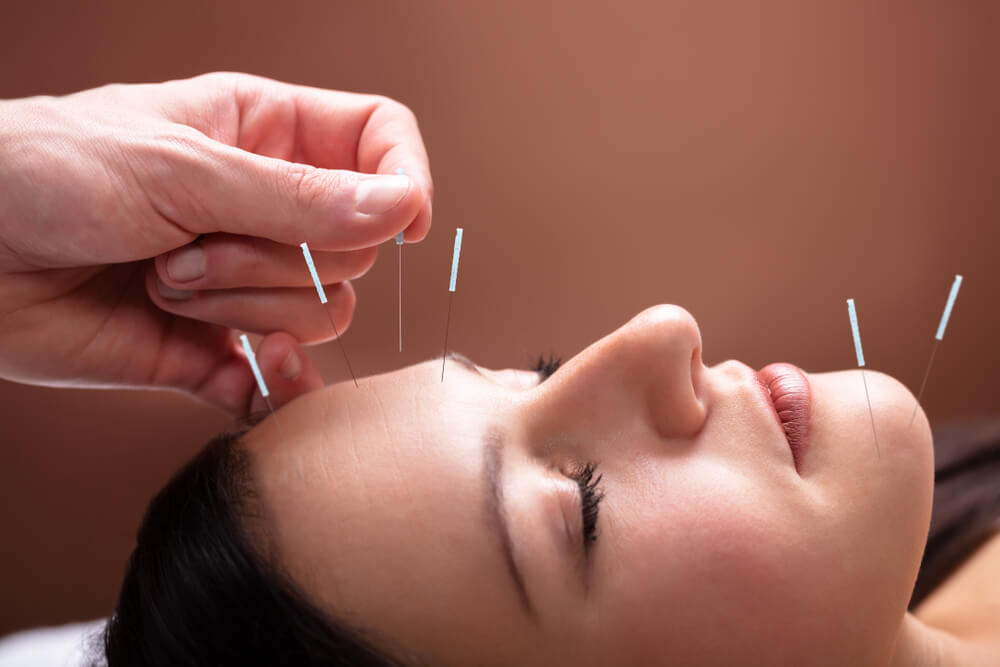
Though acupuncture is a safe way to cure allergies but taking a few precautions and getting prepared for acupuncture to treat allergies is also necessary. Acupuncture is inserting needles to specific pressure points of the body. Which means a potential risk of blood-borne infections and diseases exists.
Apart from that, you should always do some research about the acupuncturist, his or her credentials, certifications, and overall experiences. Check if the acupuncturist is suitably qualified to practice acupuncture for allergy.
Visit a therapist’s chamber before taking the final appointment. Check for the hygiene precautions and sterile needles that are used.
If you have a needle phobia, then make the therapist aware of it. Share your concerns and doubts. You need to be mentally prepared before acupuncture treatment for allergies. And there is no better way than asking questions.
Also Read: 9 Natural Home Remedies for Allergies
Risks and Side Effects of Acupuncture for Allergies
Whether a particular treatment is safe or not depends on the individual and his overall health. Acupuncture for food allergies and seasonal allergies is indeed a safe way, but mild risks and side effects can be there. And most of the side effects are temporary. But the good news is, the acupuncturists can change the pressure point or instantly stop the treatment. Here are the risks and side effects of acupuncture for allergies:
- Slight bruising and bleeding during puncturing skin with needles.
- Mild pain and sensitivity.
- Dizziness or losing consciousness.
- Worsening of existing condition.
- Drowsiness
There are rare incidents of severe damages from acupuncture. But if you are feeling uneasy during the session then inform the therapist immediately.
Allergies can be chronic, seasonal or can be perennial. No one likes to suffer from allergies. Medicines can give instant relief. But not solving it from the root is just allowing them to be there in your system. It can worsen the situation.
Acupuncture for allergies works differently. By clearing all the blockages and balancing the vital energy in the meridians, Acupuncture is the best way to solve the ailment known as allergy. So keep your allergies at bay with acupuncture and forget those moments of discomfort.

